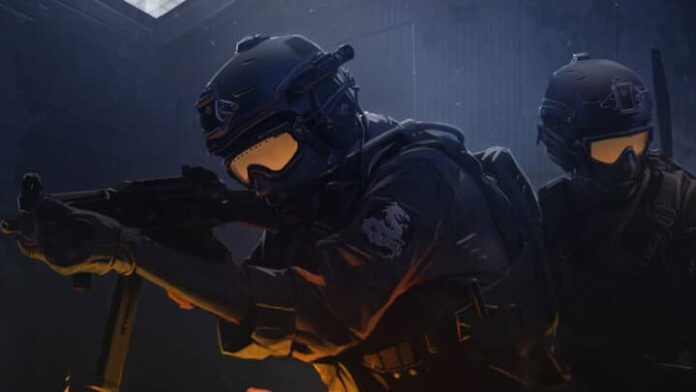Valve taken several big steps over the past few years to make CS:GO as fair and sporting as possible. However, there are still some aspects to the game that need some work. A comment.
Remember the days when it was extremely easy to reach the Global Elite rank in CS:GO? I do, and back then you couldn’t particularly brag about it. Unless your friends weren’t Global themselves. Nowadays, it seems to be a little more challenging after Valve tweaked the system. Once you get to the top, it actually feels like it.
— CS:GO (@CSGO) May 5, 2021
Valve has tried to make the game more professional by introducing the Premium competition. There, players can veto maps and indicate which side they would prefer to start on. This makes match-making much more attractive for some players. Having the option to choose something instead of just being thrown into a match and playing everything as it’s given.
A greater sense of achievement
If you currently want to play in a tournament or cup, you have to go to a third party provider such as FaceIT, ESL and ESEA. But how great would it be if you could play small cups directly in the game? You could get in-game rewards such as coins as a prize, which you could then display in-game.
Imagine your team won the monthly CS:GO finals in June 2021. You’ve worked hard for that, and you might be able to instil some respect in your future opponents. Games like Rocket League already come with a similar mode.
Many of the casual players, who often have a lower rank, are very hesitant about such third-party platforms. After all, stronger opponents are probably waiting there. However, these players might enjoy a more competitive environment if they were to play against teams of a similar rank.
This could tie them more to the game if they want to keep improving to fight against better and better teams in new tournaments. Of course, this system would be an easy target for Smurfs, who often want to pull up lower level friends to win. As a result, Valve would have to put some limits in place. Possibly only throwing together players with a similar number of hours in their account or number of wins.
A rating system for communication
There have been so many moments when I have joined a team and only one or none of the teammates were willing to communicate. A big improvement could be made by allowing users to be rated and then grouped into a game depending on their scores in this communication system. This feature could also address toxic behaviour. Toxic players receive a lower rating.
However, for those who enjoy communicating with the other players, a better competitive atmosphere can be created. This creates a more social and motivated effect in a game where communication is the key to finding out the locations of the opponents.
Release Notes for today are up. We've made multiple adjustments to Retakes and the ping feature, agent audio, mini scoreboard misalignment, and more: https://t.co/uxm93xtYYv
— CS:GO (@CSGO) December 5, 2020
I need an adult
Sometimes it feels like you just need someone to help you. Everything is going down the drain and all you want to do is cry out for help. Having a sixth person in the game to tell you what strategy to use, reassure others and push you to victory can be extremely helpful. I’m talking about a coach, of course, not a substitute. The extra pair of eyes can also make the whole matchmaking process more professional and help some players or teams to outdo themselves instead of swimming in a series of defeats. Outside help is almost never a bad thing and many teams could benefit from it.
Of course, you have to find someone who doesn’t mind skipping a whole match. However, for groups of friends where six people actually want to play, it might be the best solution. Having an empty seat to rotate between still gives you the opportunity to contribute to the game.
Adren is back as the head coach for @TeamLiquidCS!
The last time he coached them, they had one of the most dominating runs in CSGO history 👀 Will he be able to do that again?
What do you think of this move by @TeamLiquidCS? https://t.co/09A0abr7ug
— BLAST Premier 💥 (@BLASTPremier) May 5, 2021
Of course, with all these changes always comes the danger of making the matchmaking system far too complicated. I dream of Valve just taking things more into their own hands instead of sitting back and seeing what happens. And then every now and then an update is thrown out that is not really celebrated by fans – and yes, I want Train back.


